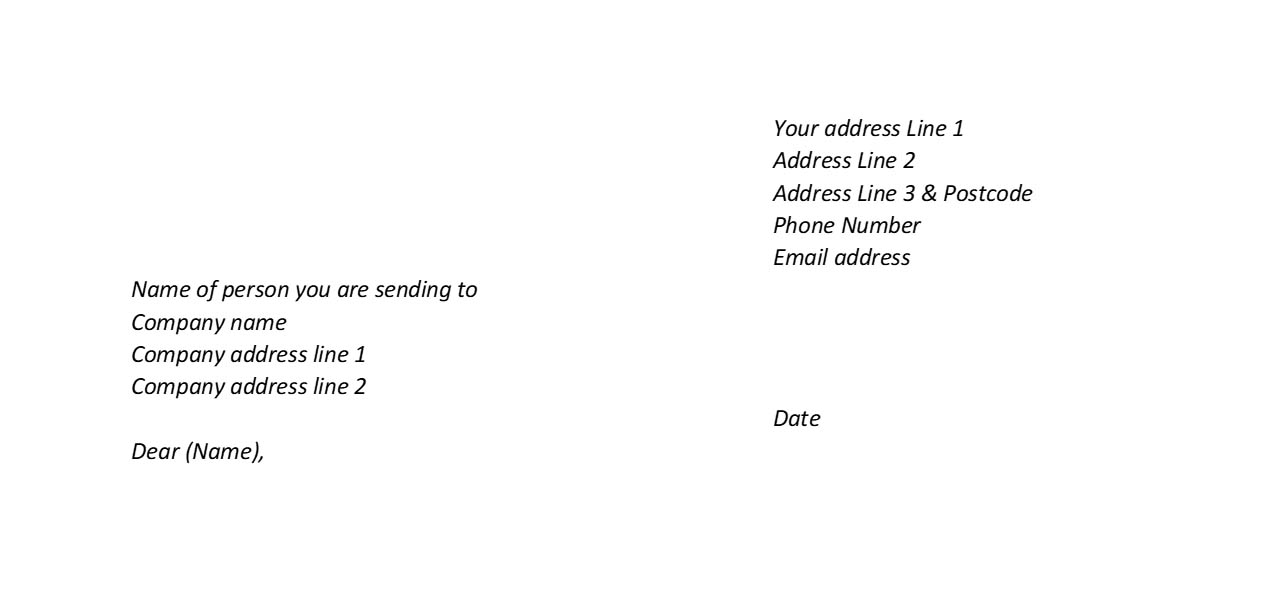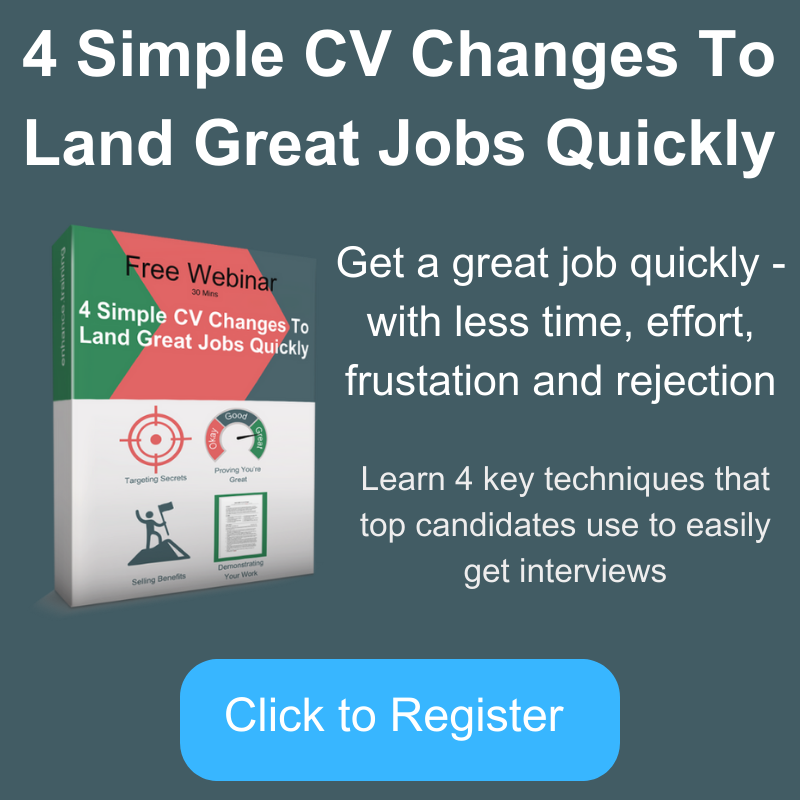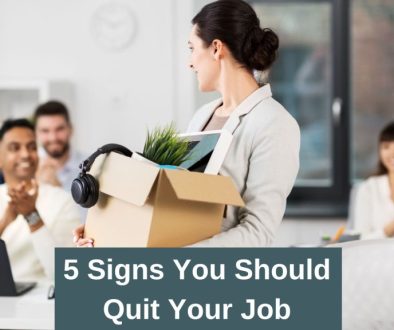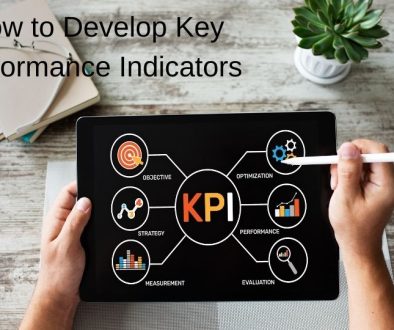The purpose of writing a good cover letter is to make your application stand out and improve your chance of being invited to interview. Typically, over 80% of applicants do not get past the CV stage. Because too few candidates write a cover letter, doing so will put you ahead of most of your competition.
Most recruiters and hiring managers do read covering letters so using this space to sell your skills is a great use of time. Also remember, that a poor cover letter can harm your candidacy too.
In this article we explain how to write a cover letter, what to include, what not to, how to structure the cover letter and provide examples.
How to write a good cover letter
To write a good cover letter you must do your research on the role and on the company before putting pen to paper. This step will help make your cover letter relevant to the person reading it and therefore put you further ahead of candidates that have sent in a generic cover letter or just their CV.
Do your research
The job advert or what you have been told by the recruiter is a good starting place. Places to look for additional information include the company website, LinkedIn, google and industry publications.
Aim to understand:
- What the company does – the products and/or services that it provides
- Their competitors and market position
- The company culture
- What the key responsibilities and challenges of the role are and what are the key problems hiring this role will solve for the employer
- The key skills, experience, and achievements that you have which are going to solve the key employer’s problems
Use the research to tailor your letter to the specific role and company you are applying to. This will make it relevant, demonstrate your interest and suitability for the role and company in question.
Do not copy and paste sections from generic covering letters. We have seen too many examples of this. A poor cover letter hurts your application, not helps it!
Do not copy sections from your CV word for word. You are wasting your opportunity to add addition information and make information more relevant.
How long should a cover letter be
Your cover letter should be no longer than one page of A4. There is always a lot you could write in a cover letter, so it is important to choose key information that the reader will be interested in knowing about. Highlight how you are a solution to the hiring company’s problems with what you write!
Ideally, your cover letter should contain around 4 paragraphs of information.
Make sure the font is simple and easy to read – Times New Roman, Calibri or Arial are all good choices. Keep your letter simple in design. Use a 12pt (or 14pt) font size to ensure the text is large enough to be read easily.
Don’t use large blocks of text as these are hard to read quickly. Make use of bullet points where appropriate, which allow the recruiter/hiring manager to skim read easily.
How to address a cover letter
Address your letter to the person dealing with the applications. In most cases this will be the hiring manager or an internal recruiter or an HR person.
The job advert may say who this is. If not, don’t be afraid to call and ask for the name of the person you should address your letter to. This gives you an addition touch point with the hiring team to show your keenness and professionalism.
If you are applying through a recruiter, then ask for the name of the hiring manager – make sure you get the spelling right.
If you are not able to find the right person to address the letter to, then use “Dear Sir/Madam,” at the start of the letter. We strongly recommend you make the effort to find the name of the right person before sending in your letter and CV.
How to structure a cover letter
Your cover letter should be structured as a formal business letter would be. Include your name, contact details -phone number, email, and full postal address – at the top of the letter.
Make sure your email address is professional looking. Johnsmith@Gmail.com is fine as an example. Wicked900@gmail.com does not appear nearly as professional.
Below this on the page include the contact name, company name and their address.
Then add who you are addressing the letter to.

Paragraph 1
The opening paragraph should be short, concise and explain why you are applying to the company.
E.g: I would like to apply for the role of Digital Marketing Manager, as advertised on monster.co.uk. Please find enclosed my CV for your consideration.
Paragraph 2
In this paragraph explain why you are suitable for the job and explain what makes you an applicant they should be interested in speaking to.
What you put in this paragraph depends on your research and what the hiring company is looking for. Tick off as many of the key criteria as possible without creating a bland list.
e.g. I love your Rumble brand and am very excited by your recently launched kombucha range. I have 8 years of marketing experience in the FMCG industry, including working at Innocent Drinks and Graze. I have a great track record of revenue growth and successfully leading marketing teams and managing marketing agencies which is why I am applying for this role.
Do not copy sections of your CV into the cover letter.
Paragraph 3
Use examples or achievements to highlight what you have delivered and what you can potentially deliver for this company.
e.g. I have created and managed Facebook and Instagram campaigns that increased revenues by 26% and 32% over the last two years at Yellow Tree Drinks Ltd. My team of five won best team in our internal company awards this year and have delivered against all objectives set during the year. I also received the top appraisal grade.
Use your best examples here to grab the reader’s attention and wanting to learn more. Your CV should have more detail so don’t worry about trying to add everything in here. Use this section to highlight the important points of your CV while making sure it is relevant to the job requirements for this specific company.
Paragraph 4
In this final paragraph, show/explain why you are very interested in the company and remind the reader of your top 2 or 3 points as to why you can solve their key problems.
Ask to meet with the reader / hiring manager at interview as your last point of the letter.
e.g. I would really like to join your team at this exciting time in your growth. I have the experience, track record and skills that you are looking for and would love the opportunity to deliver similar results for you.
Thank you for your time and I look forward to meeting with you to discuss my application in more detail.
Closing the letter
Sign off the letter with “Yours sincerely,” followed by your signature.
Make sure you sign the letter by hand rather than using an electronic signature, even if you subsequently scan your letter into PDF format.
It is also sensible to have your name printed below your signature.
Sending your covering letter online
If you are applying through a job portal or the company’s job portal, you will need to send your covering letter and CV in electronic format.
Make sure the documents are in PDF format.
PDF documents can be read on any computer, Windows, or Apple, so you can be sure that the recipient will be able to open them. If you send via a Word or Pages document, there may be software version issues etc.
If your letter or CV can’t be opened easily, your application won’t progress.
When there is no job advertised
When there is no specific job to apply to and you are contacting a company you really want to work at speculatively, then your cover letter should have a slightly different format.
Your opening paragraph should state
- why you are writing to them,
- what function you are looking to join e.g. sales, marketing, …
- what role you are ideally looking for,
- why you are so keen on this company specifically.
If you know a person at the company and your application is a recommendation, include that person’s name.
e.g. I am very interested in working for Yellow Tree Ltd in the marketing function and am writing to enquire if there are or will be any vacancies. Dawn Smith, your operations manager, recommended that I contact you.
I have grown revenues substantially while at manager level in several companies. I love your Rumble brand and am very excited by your recently launched kombucha range. Please find enclosed my CV for your consideration.
In summary
Make sure you:
- Do your research before starting to write
- Tailor your letter to the role and company
- Keep your cover letter short, concise, and relevant
- Highlight how you can solve the problems the hiring company has
- Proofread everything you have written carefully
Good luck with your job applications.





